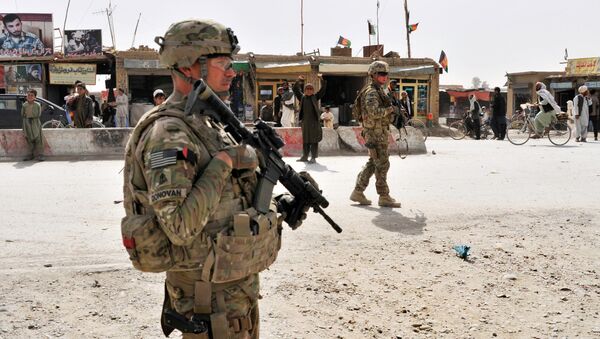WASHINGTON, May 2 (RIA Novosti), Lyudmila Chernova - Al-Qaeda threats inside the US have decreased, while growing in some classical places particularly in the Middle East, Eric Schmitt of The New York Times told RIA Novosti Friday.
“While you have less of a threat against the US homeland, there is wider range of threats against American and other Western interests around the world," Schmitt said.
Friday marks the third anniversary since Osama bin Laden's death in Abbottabad, Pakistan. Al-Qaeda leader was killed in a May 2011 raid by US navy Seals. The danger of terrorist attacks remains high particularly in the Middle Eastern countries, Schmitt added.
“Al-Qaeda’s affiliates are growing and are aggressive,” said Schmitt. "There are affiliates in North Africa, Yemen, Iraq, and Syria. And anytime there is an attack in Syria carried out by any of these groups, so in Iraq, it is considered a terrorist attack,” he said.
“There is still plenty of threats out there even if they are not from the main institution in Pakistan,” Schmitt claimed. “There are increasing attacks by al-Qaeda affiliate in Syria. The al-Qaeda affiliate in Yemen is still considered the most dangerous franchise in terms threats against the US. The al-Qaeda affiliate in Western Iraq was so extreme that it was kicked out of al-Qaeda by the headquarters in Pakistan.”
Many experts state that al-Qaeda has changed a lot for these three years. And if Bin Laden’s al-Qaeda was a much more hieratical institution, today it is increasingly decentralized in its nature.
Schmitt also noted that nowadays there is a concern about the extremist organizations proliferating intro cyber space and attacking there.
“So far, however, they have used cyber as a means of recruiting, as a means of raising money and yet have not carried out attacks against the US or other countries,” he added.
According to the report issued by the State Department Wednesday Terrorist attacks worldwide rose 43 percent in 2013 despite the efforts of the US and its allies to destroy or disrupt extremist networks.
Total attacks around the world grew from over 6,700 to some 9,700 last year, killing nearly 18,000 people. Nearly 33,000 people were injured, and another 30,000 kidnapped or taken hostage. Iraq, Pakistan and Afghanistan were reported as the deadliest countries for terrorism.


